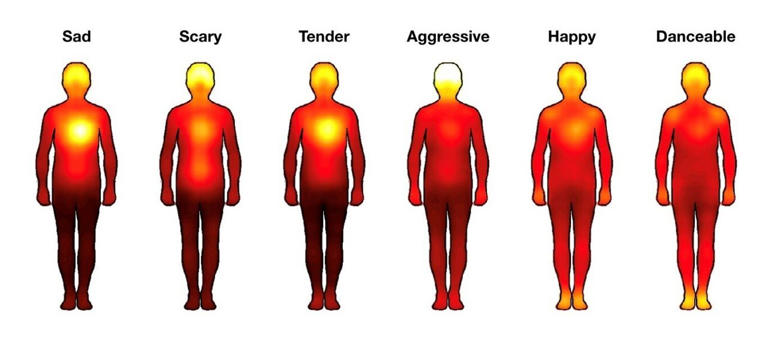 “Who’s so cute? Yes you are. You’re so cute, aren’t you?” Baby talk sounds pretty similar whether we’re cooing to babies or our dogs.
“Who’s so cute? Yes you are. You’re so cute, aren’t you?” Baby talk sounds pretty similar whether we’re cooing to babies or our dogs.
In fact, research has even suggested that dogs’ brains are sensitive to the familiar high-pitched “cute” voice tone that adult humans (especially women) use to talk to babies.
But an interesting new study entitled “The face behind the caring voice: A comparative study on facial prosodic features of dog-, infant- and adult-directed communication” has has spotted a crucial difference:
When baby talking to infants, our faces tend to be overly expressive—wide-open eyes, high eyebrows, and exaggerated smiles. With dogs, we’re far more stoic, researchers report in a new study in Applied Animal Behaviour Science.
Dogs and Baby Talk
Scientists have been studying baby talk with dogs (and more recently, cats) for more than 40 years. In fact research has found similarities between infant and dog brains during the processing of speech with such a high-pitched tone feature.
But little work has been done on the facial expressions that go along with the baby talk.
Anna Gergely, an evolutionary biologist and dog owner wondered whether there might be differences between how we coo to our fur babies and our human ones. So she designed a study to answer that question.
Dog Study Methodology
In the new study, Gergely and her colleagues recruited 23 Hungarian couples who had both a baby between 6 months and 18 months old and a pet dog.
While visiting the families in their homes, the researchers asked the parents to speak three short monologues individually to the dog, the baby, and the other parent.
The monologues involved things like teaching a new word, reciting a nursery rhyme, or reading a script of everyday sentences such as, “What nice weather!”
Gergely and her colleagues filmed the parents’ faces while they were speaking to their partner, pet and infant. Later, the researchers used “face-reading” software to analyze the parents’ facial expressions and muscle movements.
Dog Study Results
 Gergely’s study suggested that the parents’ faces were the most intensely expressive—with more exaggerated expressions—when talking to their babies, especially when reciting the nursery rhyme and scripted sentences.
Gergely’s study suggested that the parents’ faces were the most intensely expressive—with more exaggerated expressions—when talking to their babies, especially when reciting the nursery rhyme and scripted sentences.
The facial expression recognition software ranked their expressions as particularly happy and often evoking surprise, Gergely says.
By contrast, participants had the least amount of facial muscle movement and the most neutral expressions when they were talking to their dogs—even though they seemed to be using a voice nearly identical to what they used with their babies.
Dr. Matsumoto’s Thoughts
Dr. Matsumoto thinks it is far fetched to suggest that humans talking to dogs know or have memorialized different meanings of faces in the animal kingdom.
Instead he suggests that there are many possible reasons why humans may be more expressive with infants than with their canine companions.
Here are a few:
1. When humans talking to infants they are even more animated, which requires additional signaling. In turn, this additional signaling recruits more behaviors, including faces. Another difference not discussed is that human – infant signaling is stronger, i.e., more intense.
2. Humans unconsciously speak animatedly for infants to learn about how to read facial expressions. This is less important for other animals.
3. Infants can verbalize many different emotional states, and can thus refer to them in their facial expressions. Infants will learn about multiple states and their links to language. This is less important and not required for animals.
What do you think about the possibilities Dr. Matsumoto outlined above? Which do you think is most plausible?
The post Study: We Use “Baby Talk” With Our Dogs But Not Baby Faces first appeared on Humintell.
 Over the years there have been many questions about
Over the years there have been many questions about  When smiles are reactions (i.e., they go on and off the face) and they occur by themselves, they are likely to be signs of enjoyment, amusement, happiness, contentment, or some other positive emotion label (thus, there are as many labels for these smiles as there are positive emotion words in culture’s language).
When smiles are reactions (i.e., they go on and off the face) and they occur by themselves, they are likely to be signs of enjoyment, amusement, happiness, contentment, or some other positive emotion label (thus, there are as many labels for these smiles as there are positive emotion words in culture’s language). When smiles are reactions and they occur with other body movements, the smiles can signal other emotions.
When smiles are reactions and they occur with other body movements, the smiles can signal other emotions. But smiles that occur with other emotional expressions are often not reactions; instead, they are what we call
But smiles that occur with other emotional expressions are often not reactions; instead, they are what we call  Reward smiles
Reward smiles

 The idea that
The idea that